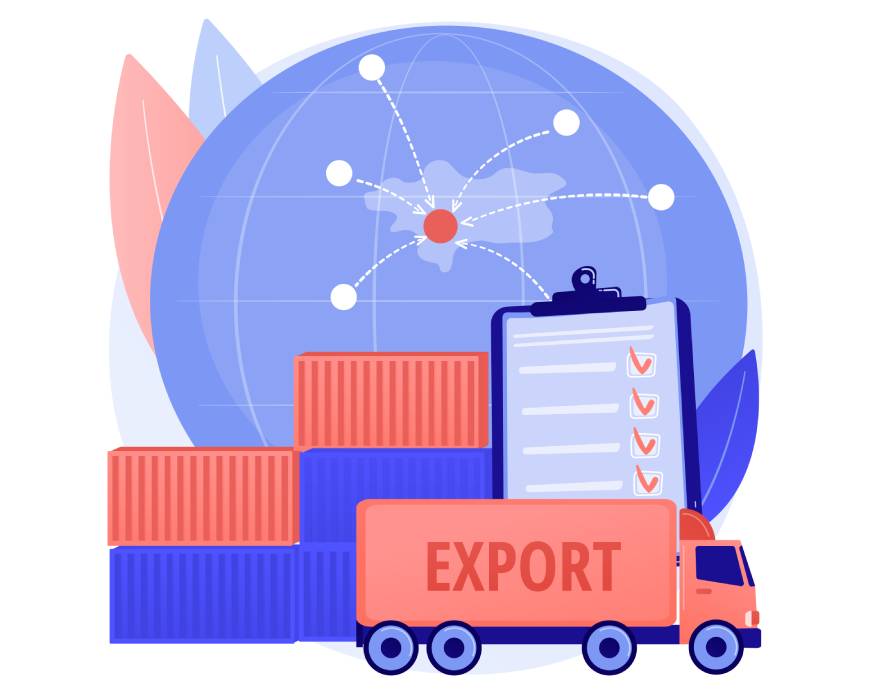Market Intelligence: How Import Export Data Influences Business Decisions
- Log in to post comments
In the fast-paced and interconnected world of modern commerce, maintaining a competitive edge is paramount to triumph in business. Thriving entrepreneurs rely on the power of precise and extensive market insights to make well-informed choices. And this is precisely where the global trade data provider steps in.
A professional market research company in India empowers importers and exporters with the ability to scrutinize market demands, unearth potential suppliers or buyers, and keep a close watch on the ever-evolving competition.
The influence of import-export data on businesses spans many critical dimensions, several of which are highlighted below.
Unveiling Market Trends with Import-Export Data
To navigate the ever-changing business landscape, entrepreneurs must have their fingers on the market's pulse. Import-export data provides invaluable insight into emerging trends, helping businesses identify new opportunities and adapt their strategies accordingly.
Proper data analysis on imports and exports helps entrepreneurs uncover patterns and shifts in consumer demand, allowing them to stay one step ahead of their competitors.
Whether spotting rising markets, identifying popular products, or assessing market saturation, import-export data serves as a compass to guide strategic decision-making.
Assessing Market Potential and Identifying Opportunities
Expanding into new markets is a goal for many businesses, but it can be risky without proper market intelligence. Import-export data helps entrepreneurs evaluate the potential of a target market by providing information on the volume, value, and types of goods being traded.
Additionally, import-export data allows entrepreneurs to uncover niche markets, helping them tailor their strategies to meet consumer needs and preferences.
Mitigating Risks and Supply Chain Optimization
Every business faces risks, but being aware of potential challenges effectively mitigates them. Import-export data offers insights into supply chain dynamics, enabling companies to identify potential bottlenecks, disruptions, or vulnerabilities.
Entrepreneurs can proactively address issues such as regulatory changes, transportation delays, or shifts in sourcing patterns by monitoring the movement of goods across borders. This data-driven approach empowers businesses to optimize their supply chains, ensuring smooth operations and minimizing disruptions that could impact profitability.
Competitive Intelligence and Benchmarking
In a fiercely competitive market, understanding your rivals is crucial. Import-export data provide valuable competitive intelligence by revealing who your competitors are, their market share, and the products they trade.
Moreover, import-export data allows businesses to benchmark their performance against industry peers, identifying areas of improvement and staying on top of industry trends.
Making Informed Financial Decisions
Financial decisions play a pivotal role in the success of any business. Import-export data can significantly influence financial planning and investment decisions. Examining trade flows and market demand enables entrepreneurs to estimate revenue potential, project sales volumes, and plan production capacities.
Furthermore, import-export data aids in assessing the creditworthiness of potential business partners, enabling informed decisions when establishing new supplier relationships or exploring international collaborations.
Happily Trade Exim is one of the leading market research firms in India. We provide EXIM data on the quantity and value of merchandise imported and exported between different nations. We have the largest database to offer information about exporters and importers and the number of countries included.
Partner with us today! Together, we'll shatter the confines that hinder your growth!

FAQs
Q: What is the importance of import-export data for businesses?
Import-export data is crucial for businesses as it provides valuable insights into global trade trends, market demand, and competitor analysis. It helps identify potential markets, assess product viability, and optimize supply chains.
Import-export data also aids in compliance with customs regulations, supports strategic planning, and facilitates effective international partnerships. Overall, import-export data empowers businesses to make informed decisions, expand their customer base, mitigate risks, and enhance profitability.
Q: How does import-export data help identify market trends?
Import-export data helps identify market trends by providing information on traded goods' volume, value, and origin/destination. Analysing this data allows businesses to spot emerging markets, identify growing product categories, and understand shifting consumer preferences.
It helps track demand patterns, monitor changes in market share, and identify potential competitors. Import-export data also reveals the impact of economic factors, government policies, and trade agreements, allowing businesses to adapt their strategies accordingly and stay ahead of market trends.
Q: Can import-export data help in mitigating risks and optimizing supply chains?
Yes, import-export data offers insights into supply chain dynamics, allowing businesses to identify potential bottlenecks, disruptions, and vulnerabilities. Monitoring goods' movement across borders enables entrepreneurs to proactively address regulatory changes, transportation delays, or shifts in sourcing patterns, optimizing their supply chains and minimizing disruptions.
Q: What role does import-export data play in offering competitive intelligence?
Import-export data plays a crucial role in offering competitive intelligence by providing valuable insights into the activities of competitors in the global market. It helps businesses understand competitors' market presence, product offerings, pricing strategies, and market share. This information enables companies to make informed decisions, adjust strategies, and develop effective tactics to stay ahead in the competitive landscape.
It helps enterprises gain a competitive edge by identifying potential gaps in the market, spotting emerging competitors, and understanding their strengths and weaknesses.
Q: What impact does import-export data have on financial decision-making?
Import-export data significantly impact financial decision-making by providing crucial information for businesses. It helps assess market demand, identify potential suppliers, and optimise procurement costs. Companies can make informed decisions on pricing, inventory management, and supply chain financing by analysing import-export data.
It also aids in forecasting revenue and cash flow, managing currency exchange risks, and evaluating the financial viability of international expansion. Ultimately, import-export data enables businesses to align their financial strategies with market dynamics and make sound financial decisions for sustainable growth.








